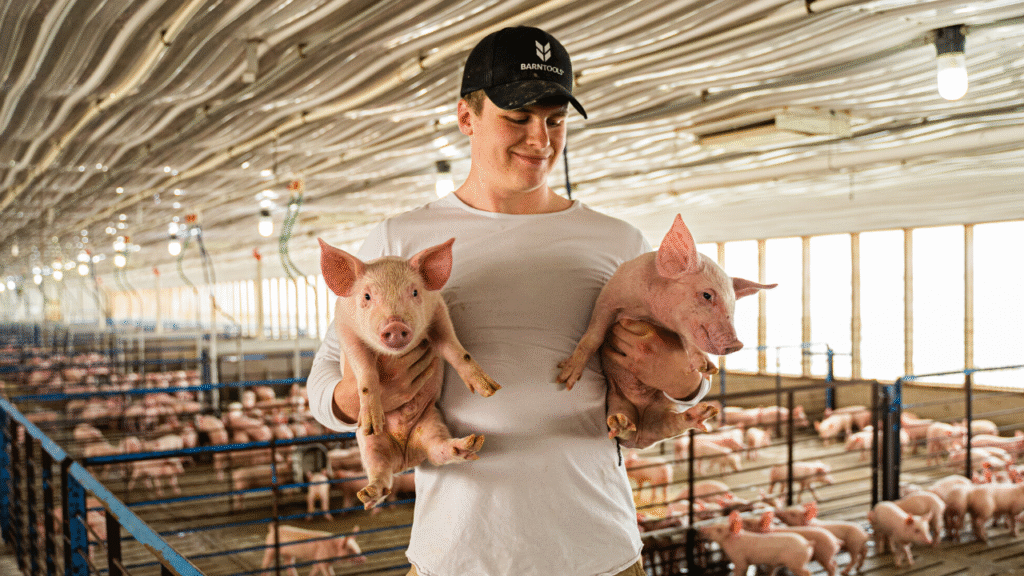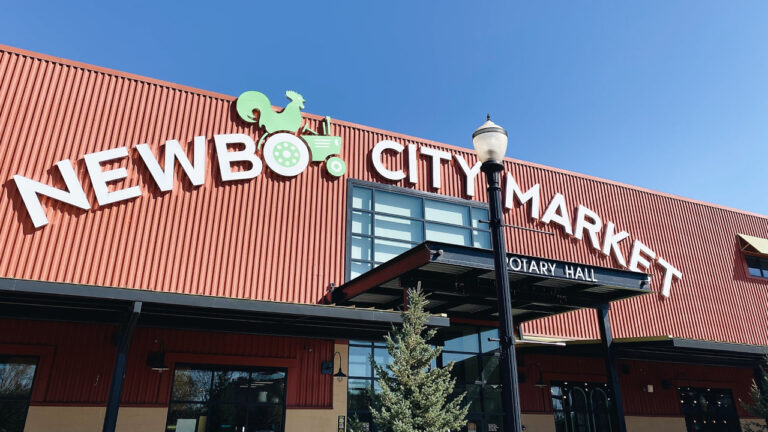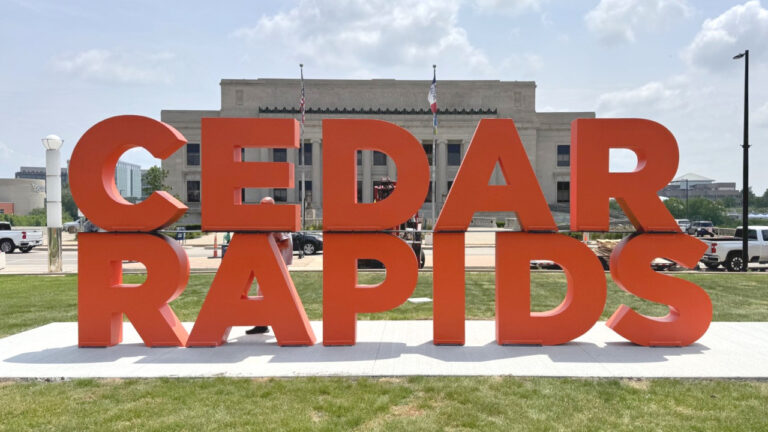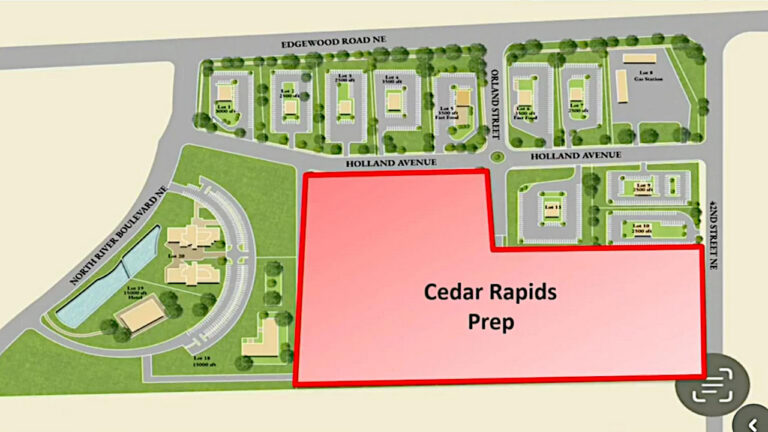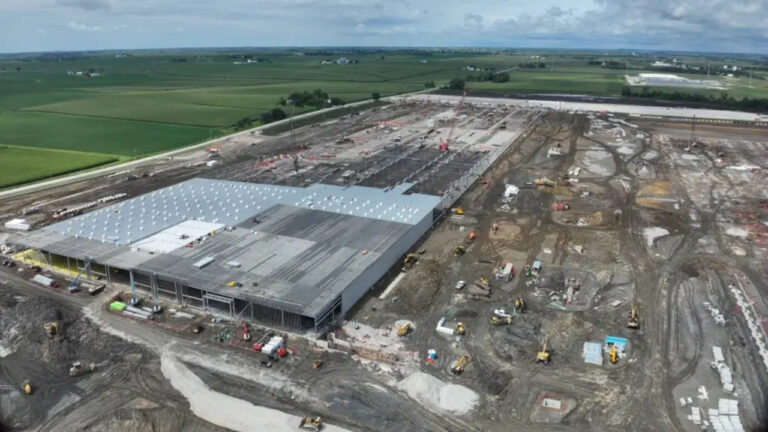Sawyer Whisler is the driving force, alongside his father, Tork, behind Farmer Grade, the subscription service providing consumers with meats sourced from small farms that all share an inside look into their farms through social media.
Sawyer shares how the content-first approach to their business has revolutionized their reach, how they select farms to partner with, and how they’re bootstrapping their startup. Additionally, he shares some thoughts on the public view of the meat industry, his advice for aspiring entrepreneurs, and what his goals are for the future.
I learned a lot and I think you will too.
Sponsored by MidWestOne Bank, this is the latest edition of the CBJ’s Real Success with Nate Kaeding and notable Iowa business and cultural leaders.
Real Success with Nate Kaeding was named Best Business Podcast at the 2024 Iowa Podcast Awards. It has also won recognitions from the Iowa Newspaper Association and the Alliance of Area Business Publishers.
Nate Kaeding: I’ve been looking forward to this conversation for a while. I got introduced to your business, Farmer Grade, through a mutual friend, Bobby Thompson. Shout out to Bobby.
Sawyer Whisler: Big shout out to Bobby. Great guy. I’m just grateful to be here, man. Appreciate the opportunity.
We’re in grilling season. You have this amazing business you started with your dad in Eastern Iowa called Farmer Grade. You guys are doing some amazing things in the meat industry by bringing local, fresh meat right to people’s doorstep via delivery direct to the consumer. But before we get into your business, I want to get your recommendations for the grill. What’s your go-to grilling item?
Sawyer: I’ve really gotten into smoking culture recently. One underrated cut nobody talks about that we carry is pork brisket. It gives you leaner parts that taste like rib meat, but the fattier parts taste like a brisket. It takes about five hours on the smoker, so you get that brisket flavor with way less time. Every time we list it on the (web)site, it just sells. Obviously burgers, beef hot dogs, and our mango habanero brats are fire as well. I love them.
What are you putting on that pork brisket? What’s the seasoning?
Sawyer: I’m a big Malcolm Reed guy. He’s got Killer Hogs as his brand. So I use salt, pepper, garlic, and a hot barbecue rub. I like to play around with my seasonings.
Let’s talk about Farmer Grade. You’ve been able to bring the local butcher experience online and connect people to unique farmers from all across the country for different cuts of meat. Talk about how you got your start and where the idea came from.
Sawyer: I went into the farming operation right out of high school and started touring pigs. But I gravitated toward entrepreneurship. I got into social media and realized its power. I started showing what we did on our operation every day and started a podcast. I saw a lot of people launching businesses off the back end of their audience. They would build the brand first, then launch the business. That was something I wanted to do. Also, I wanted to promote agriculture in a positive light and tell our story, not let someone else tell it for us.
As we built an audience, we started getting comments like, “Hey, where can we buy your guys’ bacon?” We raise pigs pretty conventionally, but people wanted to buy our product because we show exactly what we do. Our saying at Farmer Grade is: “Trust trumps all.” A lot of the direct-to-consumer meat space is about claims, but we just show what we do and people gravitate to that.
I knew it could be bigger than just our farm. There are cattle, poultry, and hog producers showing what they do on social media. That’s what started the Farmer Grade movement. I launched it in June 2023. It took a lot of trial and error—finding a processor, fulfillment center, sourcing meat from different farms—but we finally got there.
When you started showing up on the farm with your camera, how did your dad react? Was he on board?
Sawyer: I give my parents a lot of credit for never crushing my spirit. They never said, “That’s the dumbest idea ever.” My dad was like, “He’s here. I need him as much as he needs me,” when we started to see results. My dad’s pretty charismatic. One day I flipped the camera to him, and it just clicked. Now we do it together.
The Farmer Grade website is direct to consumer. You can buy boxes, individual cuts, and see the different farms. Talk me through the logistics. How complex is the meat processing and fulfillment piece?
Sawyer: When I wanted to start, the last piece I needed was a fulfillment center. I thought I’d have a fulfillment center hand-pack everything but, when you’re an early business, the fees just don’t pencil out. So I knew I’d have to do it myself. I found an old building in our town and we operate out of there now.
We buy the live animals from the farmers we work with, haul them to one of our processing partners, handle how we want them cut, then have it delivered to our warehouse where we inventory it, put it on the site, and ship it out.
How many states are you operating in now?
Sawyer: We do every state except Alaska and Hawaii. We have farmers in Pennsylvania, South Dakota, a lot of local farmers in Iowa, and some in Missouri. Anybody showing what they do on their operation every day is someone we want to work with.
So a prerequisite to get on the Farmer Grade platform is that the farmers also have to be participating in content creation and telling their story?
Sawyer: Yeah, that’s the whole idea. We’re trying to be the most trusted, transparent meat business out there. Every touchpoint the customer comes in contact with—on the site or when they receive their box—we want them to know exactly what farm this product is coming from. Every box has an insert about the farms in that box.
How hard was it finding processing partners in different states?
Sawyer: The USDA has some resources to find USDA inspected processing facilities, and you have to be USDA inspected to ship out of state. There aren’t as many as you’d think. It’s getting better; COVID highlighted the need for more infrastructure. We found the SIS program, which allows state facilities to do some USDA processing for customers. Now we also have some that are fully federal. Processors value volume and consistency, so we try to bring that to them.
Farmer Grade is a great name. How did the brand come to be and how did you pull that together?
Sawyer: I went on Dribbble and found a designer named Jim from Milwaukee. He helped take my vision and turn it into something real. I originally was going to call it Honest Meats, but Cargill owns Honest Turkey so I had to pivot. Farmer Grade came out of that and I love it more anyway. Jim helped with branding and I also worked with Marcus on the website development. We use Shopify as our backend.
How do you handle inventory management—matching what’s on the website with what’s in the freezer?
Sawyer: We do inventory every week. When it all comes in, we count it and plug it into Shopify. As people buy, it dwindles down. With subscription boxes or refunds, you have to keep track. We made it so every crate has a set number of pieces, so now we’re counting crates, not individual cuts. Inventory is one of those things we’re still learning, but we’ve gotten better as time’s gone on.
What do your goals look like? Where do you want to take this? What’s success look like five years from now?
Sawyer: I could see myself dedicating a large portion of my life to building this. We’re bootstrapping it; we’re not taking outside capital. I want to stay true to who we are and not just focus on top-line revenue. Customers matter. Their experience matters. Rewarding loyalty matters. Getting too big too fast will kill you faster than anything. A competitor, Porter Road, filed for bankruptcy after taking outside capital and trying to grow too fast. What will sink you is labor, USDA regulation, and all of that at the facility. If you try to do it all in-house too quickly, it’s tough.
Where I see us investing is in value-added stuff—maybe a smokehouse, snack sticks, or beef tallow. Long term, I’d love to build a processing facility and create jobs while telling the story through our content. My 50-year vision: Farmer Grade could be bigger than just meat. We could be the most transparent, authentic, trustworthy source of food, like a Thrive Market model, working with the most transparent farmers, whether they’re raising produce, dairy, or meat.
That makes it even more important to be a gatekeeper for who you allow in as a farmer. Are you getting a lot of farmers reaching out to you now?
Sawyer: We do have to say no a lot. A big source of people wanting to work with us comes from working with large social media YouTube farmers. We’ve done drops with Sunny Farms, who have 300,000 YouTube subscribers. He puts out videos saying, “These ten head of cattle are going to Farmer Grade,” and then other farmers want to be a part of it. Some don’t have social media but want to figure it out. We want to get to the point where we can invest in resources to help those people onboard, but right now we’re bootstrapping, so we have to allocate our funds carefully.
What should the average person know about meat and how most of us interact with it in the regular grocery store? What are some misconceptions?
Sawyer: I’d love consumers to understand how challenging the farm economy is right now. Everybody talks about the big four, and a lot of farmers had to adapt to supply meat to the big four because they’re the most efficient. The reality is, it’s either get big or die, or create your own market. Inputs for farming are getting absurd. Profit margins are shrinking and you’re a slave to the commodity market. As inputs increase, the commodity board hasn’t gone up at the same rate, so people are getting pushed out. Supporting local, supporting farms trying to create their own market—that’s how we’ll save the family farm. You’re voting with your dollars. We try to pay our farmers a premium for showing what they do, because we think that’s valuable, and the consumer finds value and will pay a little extra to support that cost.
Especially in Iowa, surrounded by agriculture, we should be more purposeful about where we’re sourcing our food.
Sawyer: Another thing that irks me is people thinking agriculture should just be a broad brush—like all cattle should be grass fed, all pigs raised on pasture, and everyone should no-till. You can’t do it because of geography, soil types, climate, or family dynamics. The reason we put pigs in hog barns here in Iowa isn’t because we wanted to confine them; it was out of necessity. In Georgia, you can raise pigs on pasture all year. Demonizing one side and saying “my way is best” isn’t helpful. Both can happen. For Farmer Grade, it’s about showing what you do, being honest and trustworthy, and taking care of your animals the right way.
There’s a huge storytelling component to your business. It’s human-oriented, starting with the farmer, not just the product.
Sawyer: We always get the question, “Oh, so you’re cheaper than the grocery store, right?” But those big four plants are the most efficient as humanly possible. The processors we work with are employing Americans and hand cutting everything. Our cost versus the big four is drastically different, and that’s why our product is more expensive.
What advice do you have for younger Iowans, maybe in their early 20s or just finishing high school, who are thinking about entrepreneurship or staying in Iowa?
Sawyer: Social media has leveled the playing field. You can use it as a tool or let it use you. I didn’t go to college. Everything I’ve done is out of pure trial and error—YouTube, Google, ChatGPT, and just the school of hard knocks. There are real entrepreneurs giving tactical business advice. Be a constant learner, and don’t let social media use you. Most entrepreneurs are just regular people who figured it out and kept going.
What area are you most focused on improving as Farmer Grade grows?
Sawyer: I’ve never been a CEO of a company. Founder-led businesses are the best to lead, but learning how to lead people, put the right people in the right positions, becoming a CEO—that’s where I’m soaking up as much information as I can so I can be the best leader, invest in people and customers, and lead the right way.
Had you always been interested in business?
Sawyer: My dad lived through the ‘90s hog crisis and had to work off-farm for years. That made an impression on me. I was focused on sports in high school, but as that changed, I realized I gravitated toward entrepreneurship and business. Being on the farm, it was probably always there.
Was coming back and taking over the farm always in the cards?
Sawyer: My parents never pushed me to go to college. I figured I’d probably go to Iowa State and get an agricultural studies degree, but I would have come back and done what I did at 18, just four years later. So I just jumped in and did it.
Sawyer, this is great, man. Keep up the great work. Farmer Grade—go online and give it a shot.
Sawyer: Hey, I appreciate it, Nate. Thanks for the opportunity.


